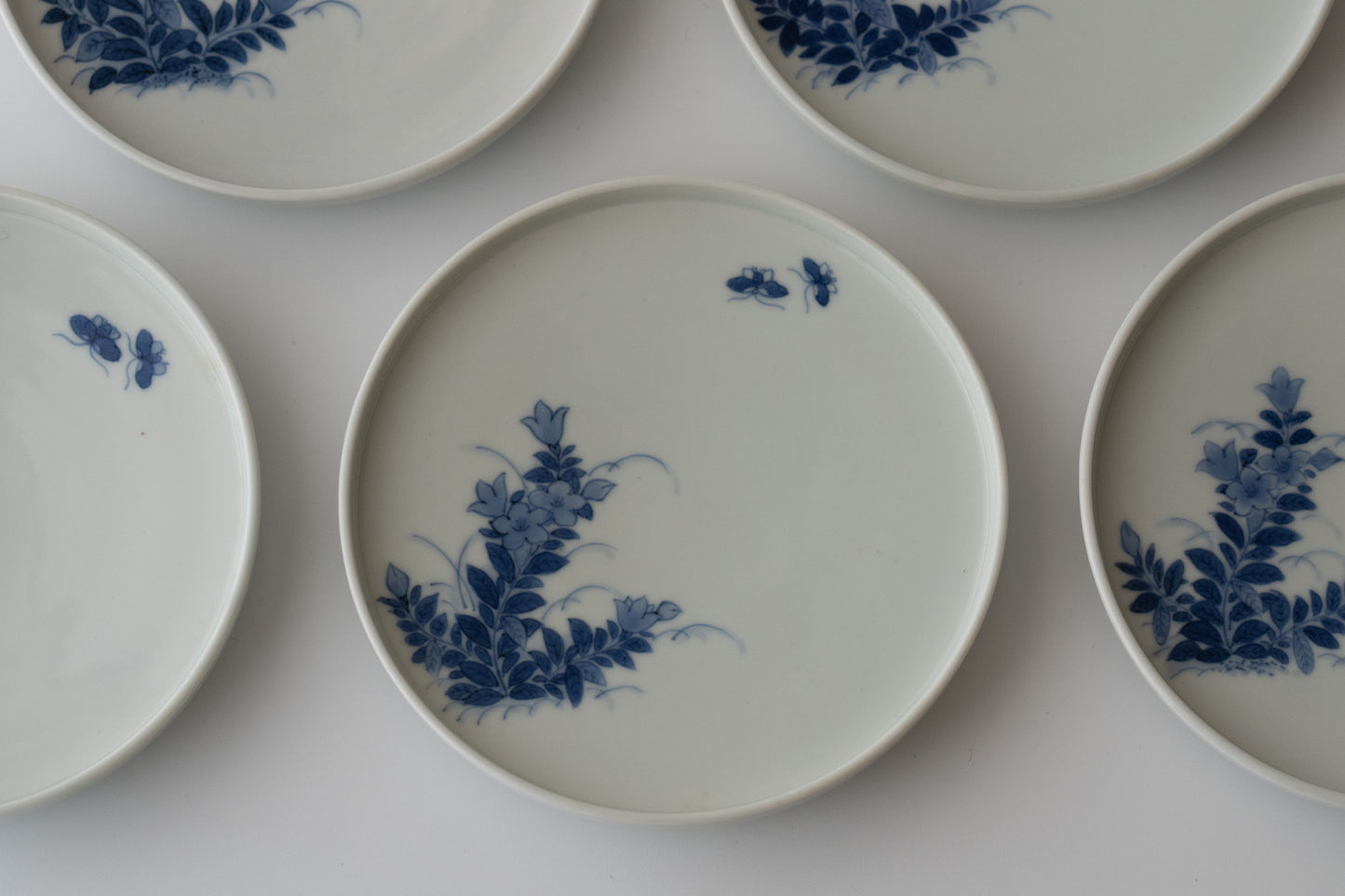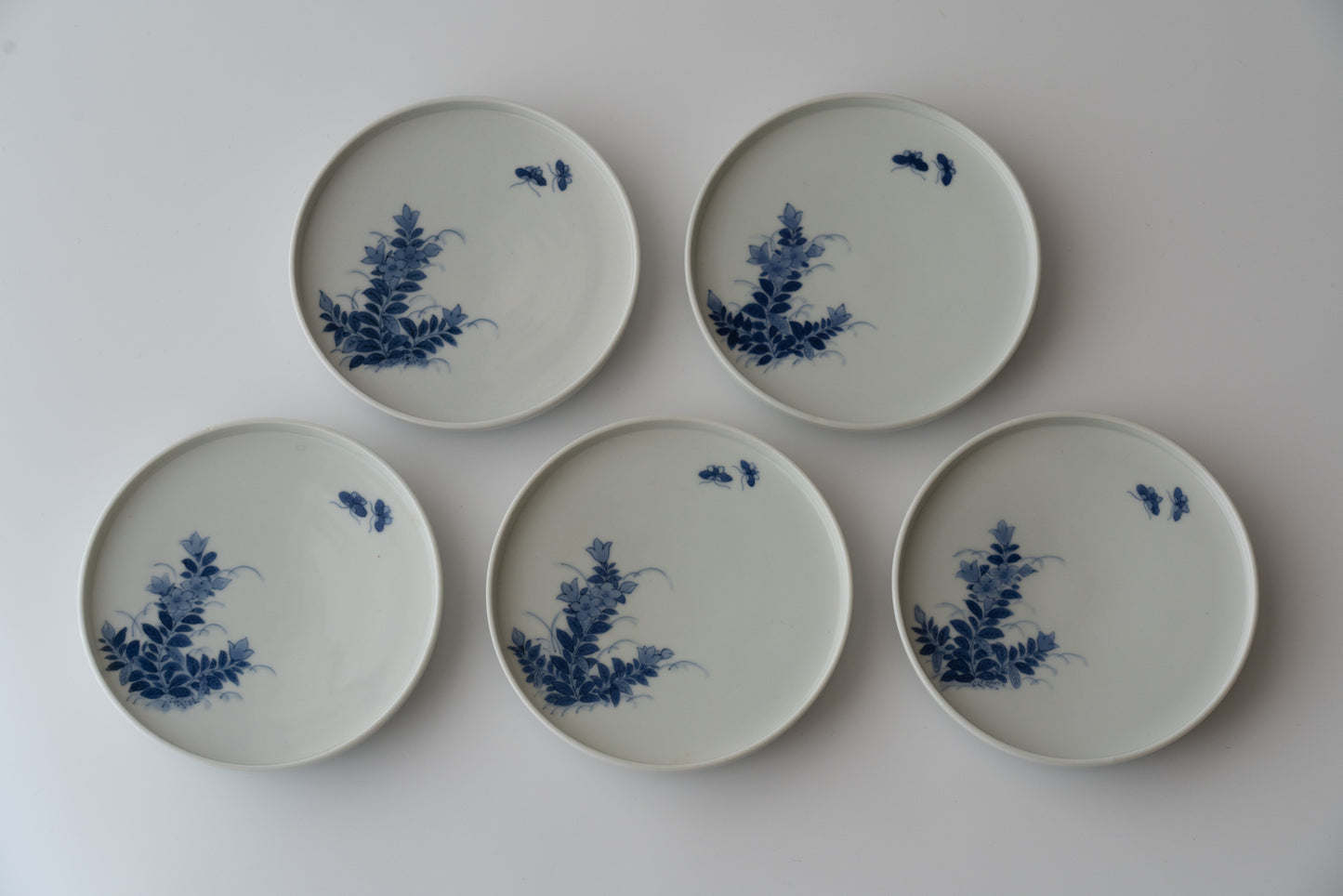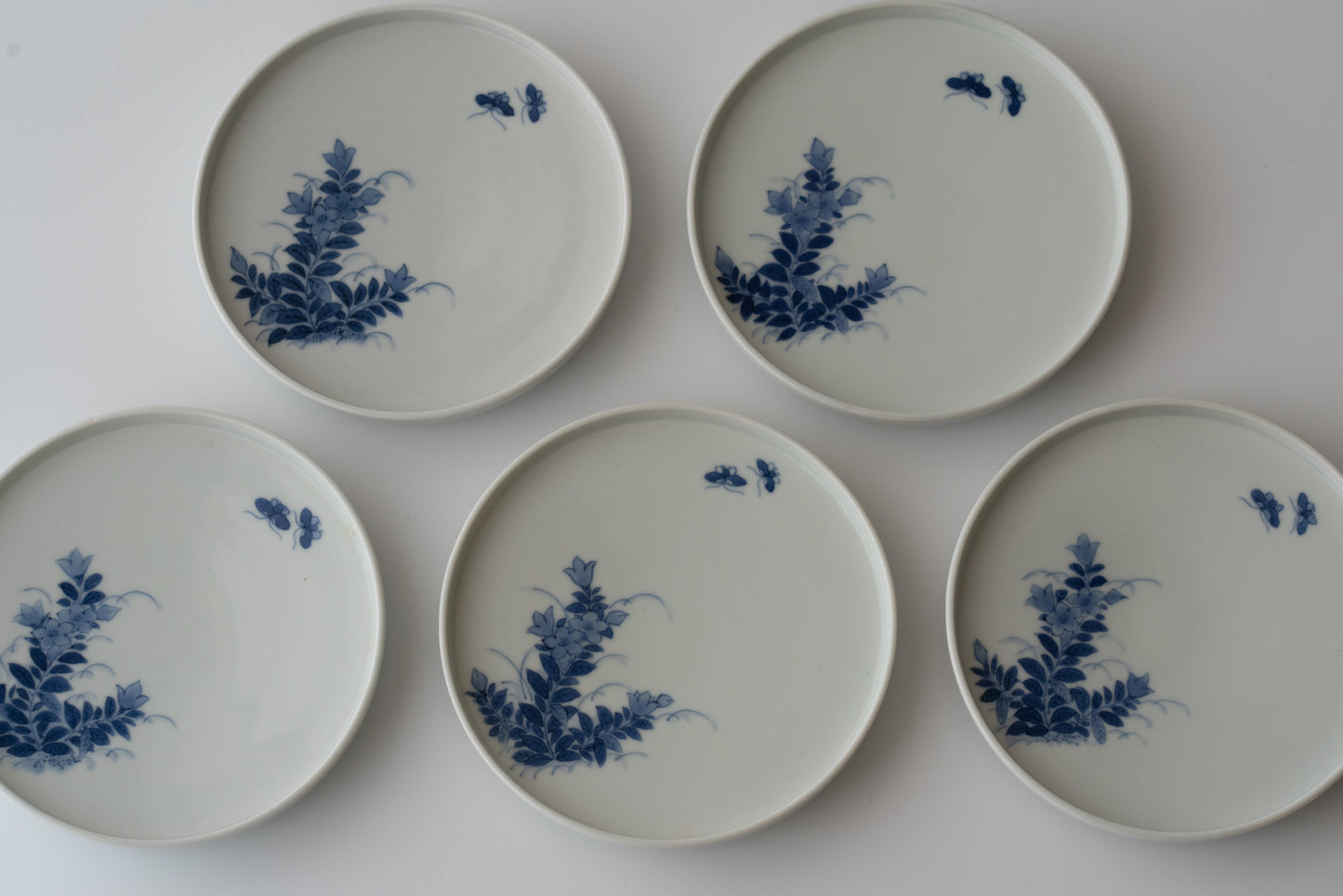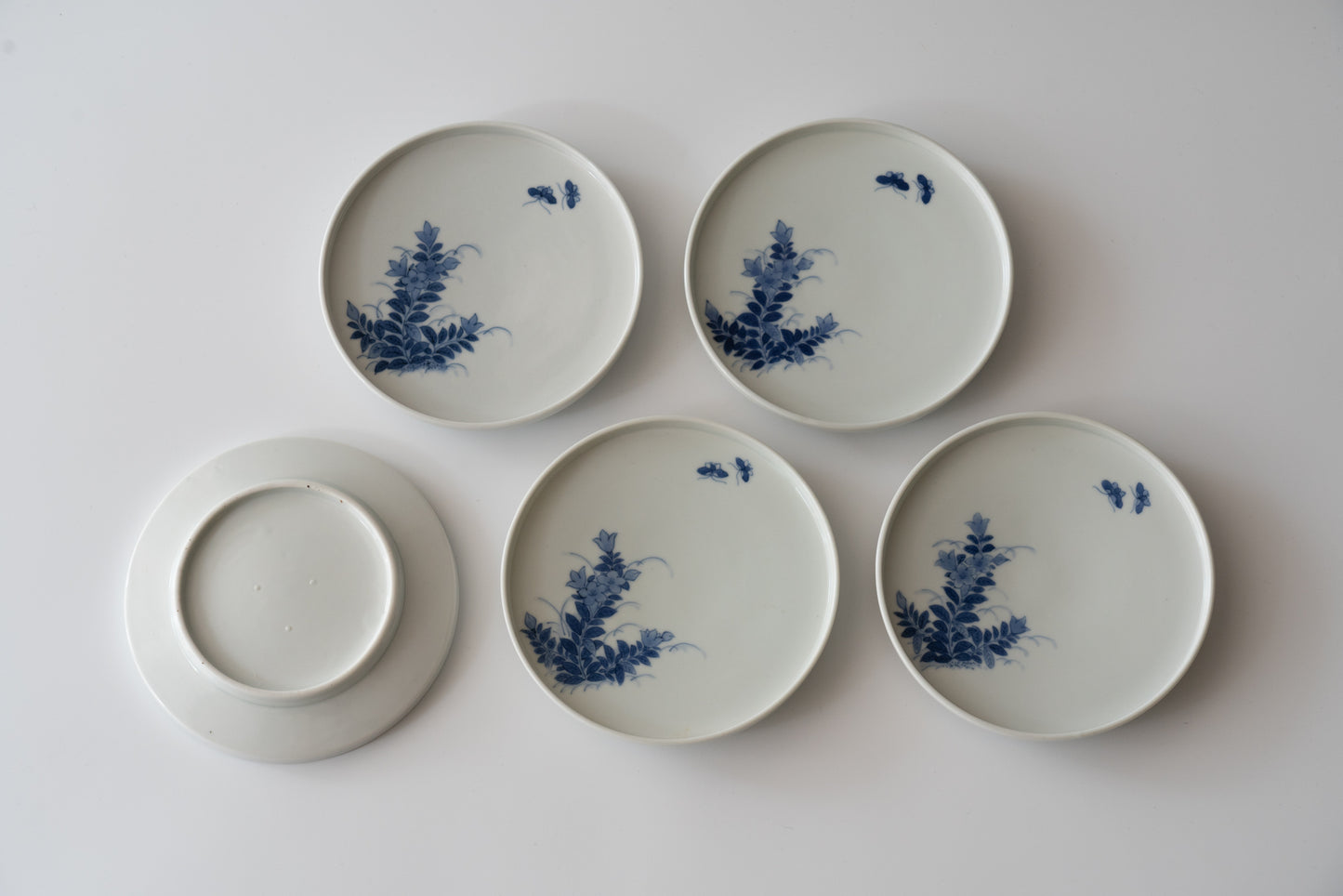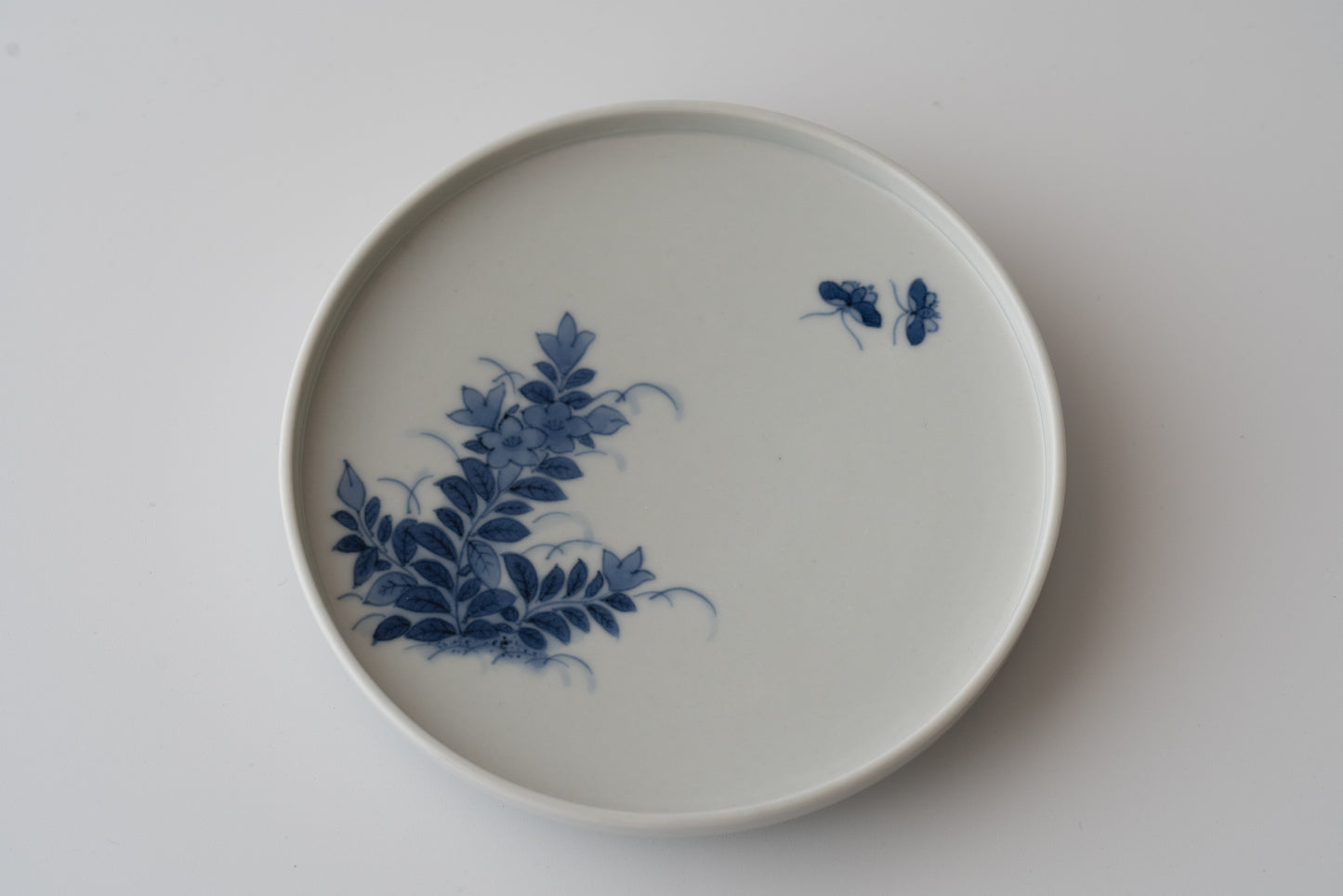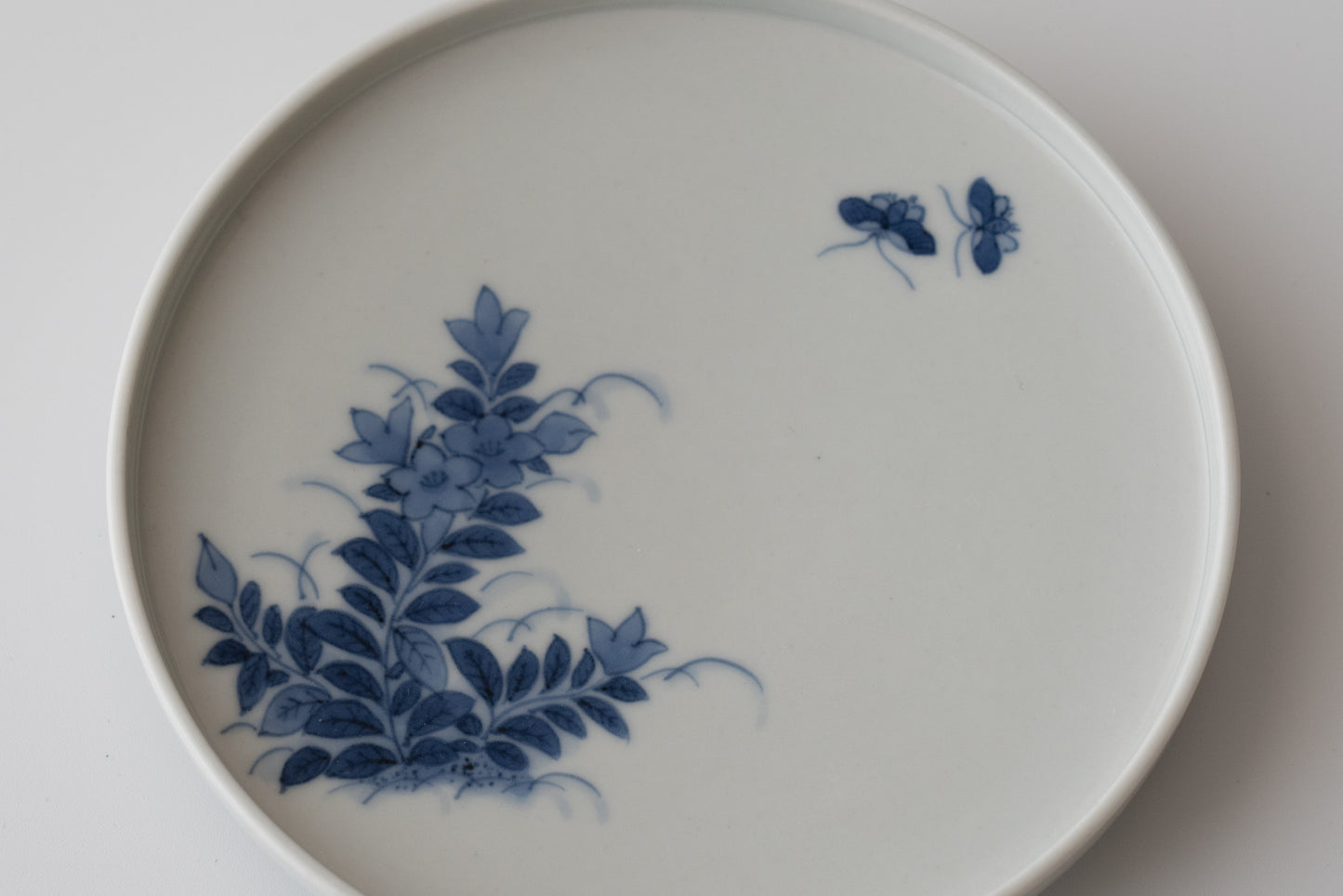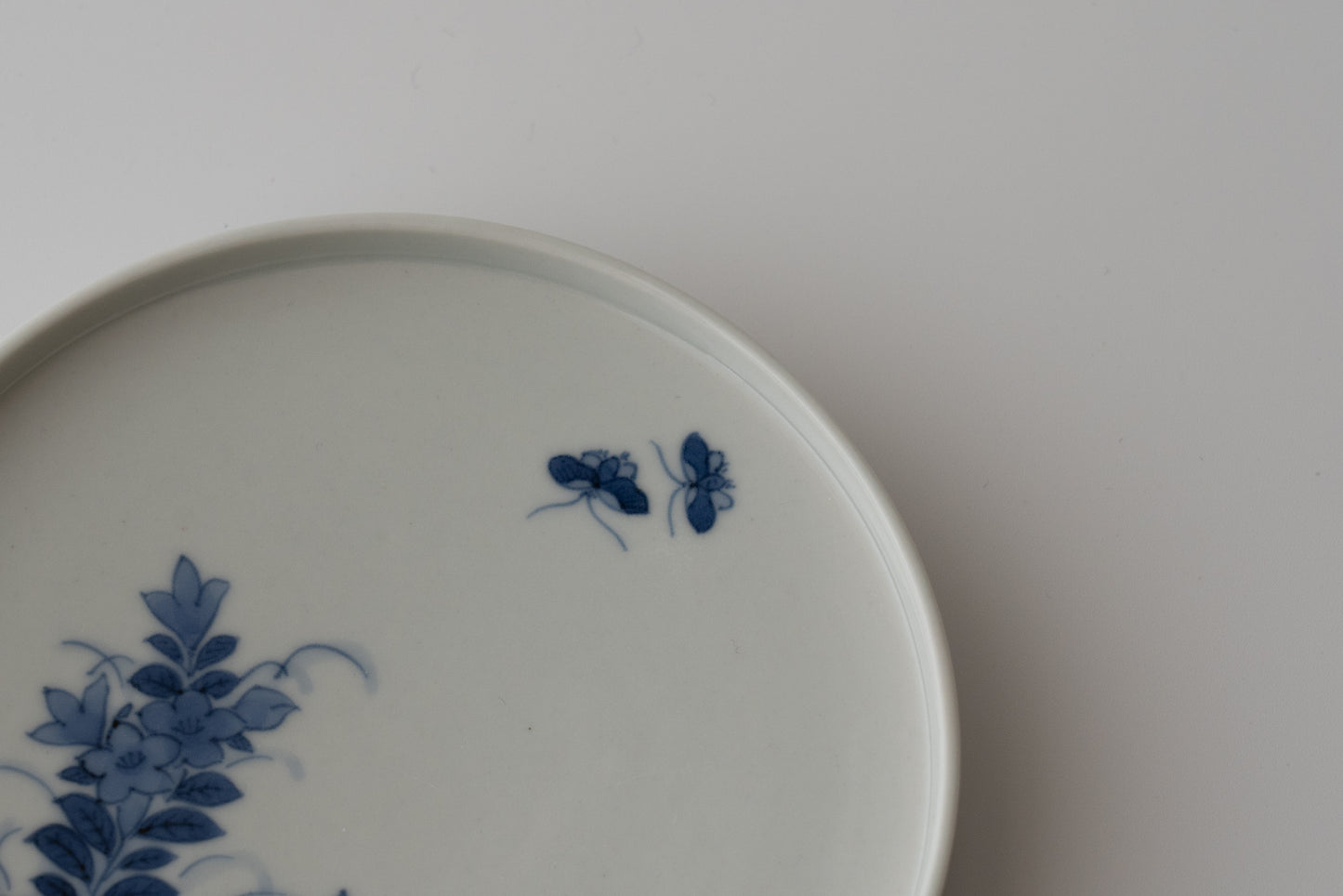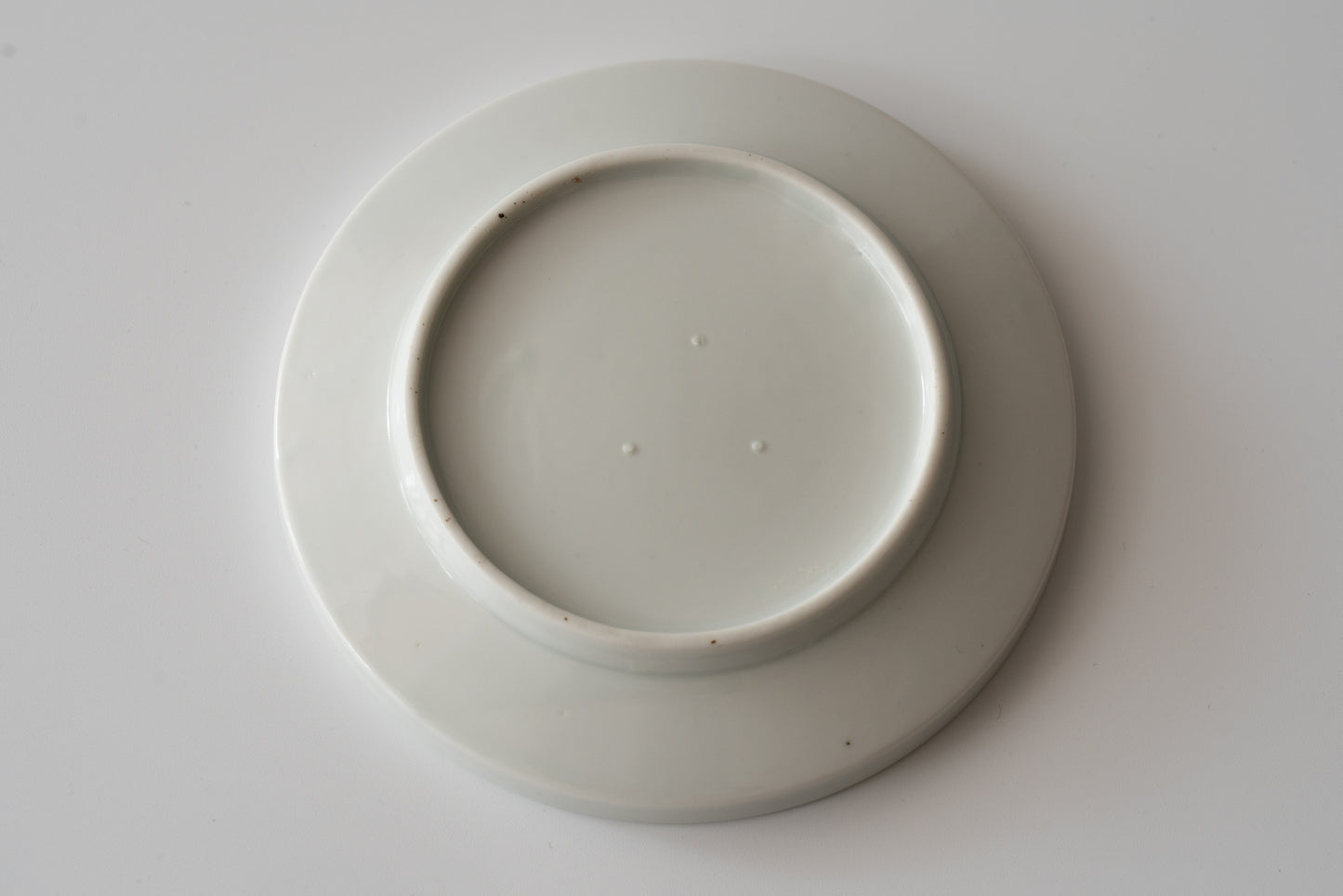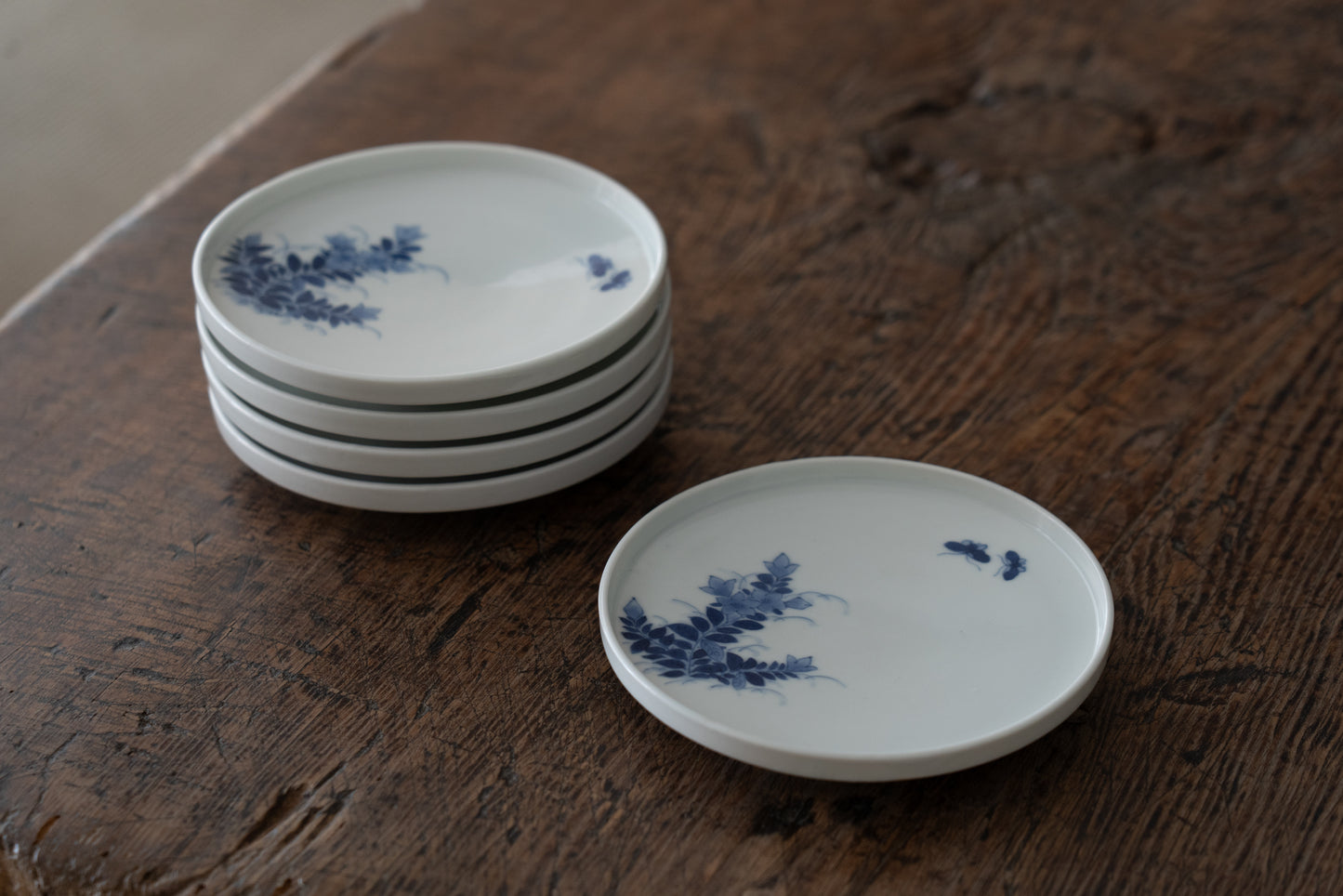Dish with chinese bellflower and butterfly design, Imari ware in Kakiemon style
$435.00
- Region/Era Japan, Arita / Edo period, late 17th century
- Size H2.2×W13.6×D13.6cm
- Condition Good antique condition
- Accessory A wood box is included only when purchasing a set of 5
- No. 42nk-47
Kakiemon is a type of Imari ware established in the late 16th century.
The group of works with features such as white porcelain called "nigoshide" and exquisite painting is called the Kakiemon style.
Ai-Kakiemon refers to those works in which only underglaze blue is used.

Chinese bellflower and butterfly.
The composition makes full use of the blank space, with nothing else superfluous painted on the surface.
The painting with gradations of underglaze blue inside the outline lines using a fine brush emerges on the white porcelain.

Kikyo (bellflower) has been called "morning glory" since ancient times and is a familiar plant in Japan, appearing in Manyoshu (The Anthology of Myriad Leaves) and The Tale of Genji (The Tale of Genji). They are considered to be autumnal flowers, but nowadays we probably feel that they are summer flowers that are at their best when the heat is at its peak.
The scene of purple bellflowers on the white sand in the summer sunlight is a typical scene at Rozan-ji Temple, which is associated with Murasaki Shikibu. The pair of butterflies also combine to give the dish a literary flavour deep within the design.

The vessel has a flat surface and a refined shape with only the rim standing up at right angles.
There are no superfluous paintings on the reverse side either, so you can simply appreciate the beautiful Kakiemon white porcelain glaze surface and form, which is also a very pleasing point.
Kakiemon's works are often excessively decorative due to their high level of technique, but this work has no such unpleasantness.
There are three small marks on the base.

Originally a set of five pieces, but each piece is sold individually.
The condition of the pieces are all intact and there is very little individual variation.
A wood box is only included if all five pieces are purchased together.
To pick up and see the actual item in the gallery.
Reservation